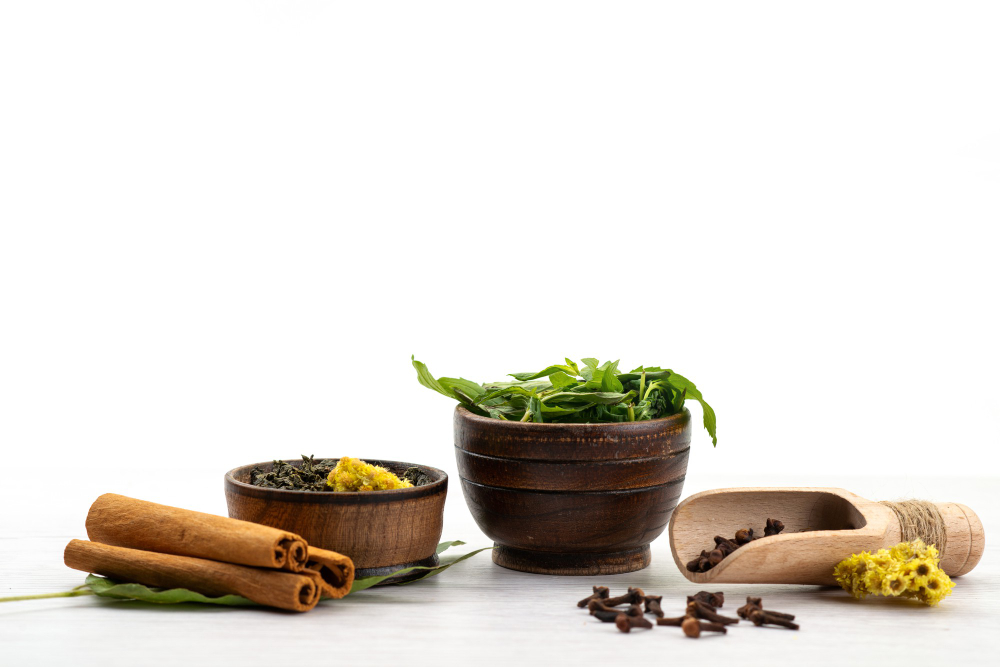Bitter Melon for lower sugar
Bitter melon, also known as bitter gourd or Momordica charantia, is a fruit that is commonly used in traditional medicine and various culinary dishes. It has been studied for its potential health benefits, including its effects on blood sugar levels. Bitter melon is particularly of interest in the context of diabetes management.
Here are some key points regarding bitter melon and its potential effects on blood sugar:
Insulin-Like Properties: Bitter melon contains compounds that may have insulin-like effects, helping to improve the uptake of glucose by cells.
Improved Insulin Sensitivity: Some studies have suggested that bitter melon may help improve insulin sensitivity, allowing cells to respond more effectively to insulin.
Reduced Fasting Blood Sugar: Research has explored the impact of bitter melon on fasting blood sugar levels, with some studies indicating potential reductions.
Charantin and Polypeptide-P: Bitter melon contains compounds such as charantin and polypeptide-p, which may contribute to its blood sugar-lowering effects.
Postprandial Glucose Levels: Bitter melon has been studied for its potential to reduce postprandial (after-meal) glucose levels.
If you are considering incorporating bitter melon into your diet for potential blood sugar
benefits, here are some tips:
Dietary Sources: Bitter melon can be consumed in various forms, including raw, cooked, or as a juice. It is used in a variety of dishes in different cuisines.
Supplements: Bitter melon supplements are also available, but it’s advisable to consult with your healthcare provider before using them, especially if you have underlying health conditions or are taking medications.
Monitor Blood Sugar Levels: If you have diabetes or are at risk of developing diabetes, continue to monitor your blood sugar levels as recommended by your healthcare provider. Inform them of any dietary changes or supplements you are considering.
link for our channel
Berberine
Berberine is a compound found in several plants, including goldenseal and barberry. It has been studied for various potential health benefits, including its effects on blood sugar levels. Berberine has shown promise in the management of diabetes and metabolic conditions, but it’s essential to note that individual responses can vary, and more research is needed to establish clear guidelines for its use.
Here are some key points regarding berberine and its potential effects on blood sugar:
Improved Insulin Sensitivity: Berberine has been investigated for its potential to improve insulin sensitivity, allowing cells to better respond to insulin and enhancing glucose uptake.
Reduced Fasting Blood Sugar: Some studies suggest that berberine may help lower fasting blood sugar levels, contributing to better overall blood sugar control.
Postprandial Glucose Levels: Berberine has been studied for its impact on postprandial (after-meal) glucose levels, with some evidence suggesting potential benefits.
AMPK Activation: Berberine may activate an enzyme called AMP-activated protein kinase (AMPK), which plays a role in regulating energy metabolism and glucose uptake.
Lipid Metabolism: In addition to its potential effects on blood sugar, berberine has been studied for its impact on lipid metabolism, including reducing levels of total cholesterol and triglycerides.
If you are considering incorporating berberine supplements into your routine for potential blood sugar benefits, here are some tips:
Consult with Healthcare Provider: Before using berberine supplements, it’s advisable to consult with your healthcare provider, especially if you have underlying health conditions or are taking medications.
Dosage: The appropriate dosage of berberine can vary, and it’s important to follow your healthcare provider’s recommendations.
Monitor Blood Sugar Levels: If you have diabetes or are at risk of developing diabetes, continue to monitor your blood sugar levels as recommended by your healthcare provider. Inform them of any dietary changes or supplements you are considering.
Garlic
Garlic is a commonly used herb in cooking and has been associated with various health benefits, including potential effects on blood sugar levels. While some studies suggest that garlic may have certain properties that could influence blood sugar, the overall evidence is not conclusive, and more research is needed to establish clear guidelines for its use in blood sugar management.
Here are some key points regarding garlic and its potential effects on blood sugar:
Allicin Content: Garlic contains allicin, a compound with potential antioxidant and anti-inflammatory properties. Some studies have explored the impact of allicin on various health parameters, including blood sugar.
Insulin Sensitivity: Limited research suggests that garlic may contribute to improved insulin sensitivity, allowing cells to better respond to insulin and enhancing glucose uptake.
Reduced Fasting Blood Sugar: Some studies have indicated potential benefits of garlic in reducing fasting blood sugar levels.
Postprandial Glucose Levels: Garlic has been studied for its impact on postprandial (after-meal) glucose levels, with some evidence suggesting potential benefits.
Cardiovascular Health: Garlic has been more extensively studied for its cardiovascular benefits, including its potential to lower cholesterol and blood pressure, which are important considerations for individuals with diabetes.
If you are considering incorporating garlic into your diet for potential blood sugar benefits, here are some tips:
Dietary Sources: Include fresh or cooked garlic in your meals. Garlic can be added to a variety of dishes, such as soups, stews, and stir-fries.
Supplements: Garlic supplements, including garlic extract or aged garlic extract, are available. If you are considering supplements, it’s advisable to consult with your healthcare provider, especially if you have underlying health conditions or are taking medications.
Monitor Blood Sugar Levels: If you have diabetes or are at risk of developing diabetes, continue to monitor your blood sugar levels as recommended by your healthcare provider. Inform them of any dietary changes or supplements you are considering.
Clove
Clove, commonly known for its aromatic and culinary uses, has been studied for various potential health benefits, including its impact on blood sugar levels. While some research has suggested potential benefits, the evidence is limited, and more studies are needed to establish clear guidelines for its use in blood sugar management.
Here are some key points regarding clove and its potential effects on blood sugar:
Compounds in Clove: Clove contains bioactive compounds, including eugenol, which has been investigated for its potential health-promoting properties.
Antioxidant and Anti-Inflammatory Properties: Eugenol in clove has antioxidant and anti-inflammatory effects, and chronic inflammation is associated with insulin resistance, a key factor in the development of type 2 diabetes.
Effects on Insulin Sensitivity: Limited studies have explored the impact of clove on insulin sensitivity and blood sugar levels, with some suggesting potential benefits.
Postprandial Glucose Levels: Clove has been studied for its potential to influence postprandial (after-meal) glucose levels.
If you are considering incorporating clove into your diet for potential blood sugar benefits, here are some tips:
Dietary Sources: Clove can be used in both sweet and savory dishes, such as baked goods, stews, and curries.
Clove Oil or Supplements: Clove oil or supplements are available, but it’s advisable to consult with your healthcare provider before using them, especially if you have underlying health conditions or are taking medications.
Monitor Blood Sugar Levels: If you have diabetes or are at risk of developing diabetes, continue to monitor your blood sugar levels as recommended by your healthcare provider. Inform them of any dietary changes or supplements you are considering.
Oregano
Oregano is a culinary herb that is commonly used to flavor various dishes. While it is known for its aromatic and flavor-enhancing properties, there is limited scientific evidence regarding its specific impact on blood sugar levels.
Here are some points to consider:
Limited Research: Oregano has not been extensively studied for its direct effects on blood sugar levels. Most studies on oregano have focused on its antioxidant, antimicrobial, and anti-inflammatory properties rather than its influence on glucose metabolism.
Antioxidant Properties: Oregano contains compounds with antioxidant properties, which can contribute to overall health. Antioxidants may play a role in reducing oxidative stress, which is associated with various health conditions, including diabetes.
Potential Health Benefits: Some studies have suggested that oregano may have potential health benefits, including anti-inflammatory and antimicrobial effects. Chronic inflammation is linked to insulin resistance, a key factor in diabetes development.
If you are considering incorporating oregano into your diet for its potential health benefits, here are some tips:
Dietary Uses: Oregano is often used in cooking and can be added to a variety of dishes, including salads, sauces, soups, and meats.
Herbal Teas or Extracts: Oregano teas or extracts are also available, but their impact on blood sugar levels is not well-studied.
Monitor Blood Sugar Levels: If you have diabetes or are at risk of developing diabetes, continue to monitor your blood sugar levels as recommended by your healthcare provider. Inform them of any dietary changes or supplements you are considering.
Holy Basil
Holy basil, also known as Ocimum sanctum or Tulsi, is an herb that has been used in traditional medicine for various purposes, including its potential effects on blood sugar levels. While some studies suggest that holy basil may have certain properties that could influence blood sugar, the overall evidence is not yet conclusive, and more research is needed to establish clear guidelines for its use in blood sugar management.
Here are some key points regarding holy basil and its potential effects on blood sugar:
Adaptogenic Properties: Holy basil is considered an adaptogen, which means it may help the body adapt to stress. Chronic stress can contribute to insulin resistance and elevated blood sugar levels.
Anti-Inflammatory Effects: Holy basil has been studied for its anti-inflammatory properties, and chronic inflammation is associated with insulin resistance.
Effects on Insulin Sensitivity: Limited studies have explored the impact of holy basil on insulin sensitivity and blood sugar levels, with some suggesting potential benefits.
Antioxidant Properties: Holy basil contains compounds with antioxidant properties, which can contribute to overall health. Antioxidants may play a role in reducing oxidative stress, which is associated with various health conditions, including diabetes.
If you are considering incorporating holy basil into your diet for potential blood sugar benefits, here are some tips:
Dietary Uses: Holy basil leaves can be used in cooking or to prepare herbal teas. The leaves can add flavor to salads, soups, or stir-fried dishes.
Herbal Teas or Supplements: Holy basil teas and supplements are available. If you are considering supplements, it’s advisable to consult with your healthcare provider first, especially if you have underlying health conditions or are taking medications.
Monitor Blood Sugar Levels: If you have diabetes or are at risk of developing diabetes, continue to monitor your blood sugar levels as recommended by your healthcare provider. Inform them of any dietary changes or supplements you are considering.
Hypoglycemia herbs work by various mechanisms, including increasing insulin secretion (found in ginseng, bitter melon, aloes, biophytum sensitivum), improving glucose uptake by fat and muscle tissues (ginseng, bitter melon, and cinnamon), preventing glucose absorption from the intestine (myrcia and sanzhi), and inhibiting glucose
Which plant is best for diabetes?
Here are 7 herbs and supplements that can be beneficial for managing type 2 diabetes:
- Aloe vera.
- Cinnamon.
- Bitter melon.
- Milk thistle.
- Fenugreek.
- Gymnema.
- Ginger.”
How can I stabilize my blood sugar naturally?
To keep your blood sugar levels healthy, Beal suggests the following:
- Exercise regularly.
- Maintain a healthy body weight.
- Reduce your sugar intake.
- Limit refined carbohydrates.
- Choose high-fiber foods.
- Stay hydrated.
- Prioritize sleep.
- Practice stress management techniques
What reduces blood sugar quickly?
The fastest ways to lower your blood sugar include taking fast-acting insulin and engaging in exercise. However, in severe cases, it’s important to seek medical attention at the hospital. High blood sugar levels are often referred to as hyperglycemia or high blood glucose







You really make it seem really easy together with your presentation but I to find this topic to be really something which I believe I’d never understand. It sort of feels too complicated and extremely vast for me. I am having a look forward on your subsequent post, I will attempt to get the cling of it!
Thank you for your sharing. I am worried that I lack creative ideas. It is your article that makes me full of hope. Thank you. But, I have a question, can you help me?
sure how i can help you
Great work! This is the type of information that should be shared around the net. Shame on Google for not positioning this post higher! Come on over and visit my website . Thanks =)